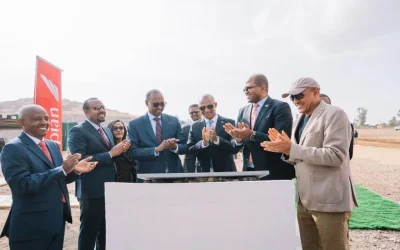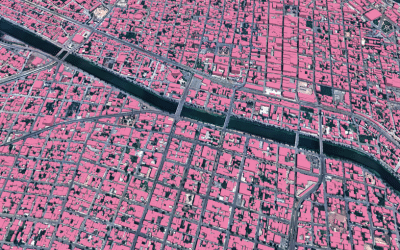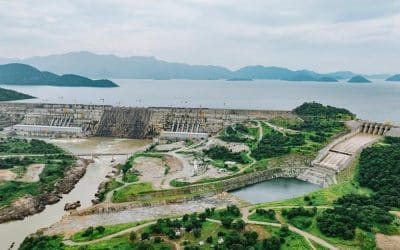Anglophone and Francophone are terms used to describe the English- and French speaking regions of Africa, respectively. These groups emerged during the colonization of Africa by France and Britain. Africa is known as a diverse continent, which has rich diverse cultures and languages. Some indigenous to their country, while others were popularised by colonialism.
Anglophone (English-speaking) countries in Africa
Anglophone refers to countries or regions where English is either the official language or widely spoken. In the context of Africa, Anglophone countries are often former colonies of the British Empire where English was introduced as the language of administration, education, and governance.
Even after gaining independence, many of these countries retained English as their official language due to its role in unifying diverse ethnic groups, facilitating communication, and serving as a global language of trade, diplomacy, and science.
In Africa, English is spoken not only by government officials and the educated elite but also by a significant portion of the population. However, in many countries, it is often spoken alongside indigenous languages. For example, in Nigeria, English is used for official purposes, but over 500 indigenous languages are also spoken.
In countries like South Africa, English coexists with several other languages, such as Zulu, Afrikaans, and Xhosa, each having significant cultural and historical importance. Despite this, English remains the primary language for business, media, and higher education.

Anglophone African countries are spread across the continent, from West Africa (e.g., Ghana, Liberia, Sierra Leone) to East Africa (e.g., Kenya, Uganda, Tanzania) and Southern Africa (e.g., South Africa, Zimbabwe, Zambia). Some of these countries, like Cameroon and Rwanda, are officially bilingual, where both English and French are recognized as official languages due to their colonial history under both the British and French.
Anglophone Africa also plays a significant role in global politics, trade, and culture, often serving as a bridge between the English-speaking world and the broader African continent. Below is a list of Anglophone countries in Africa.
- Botswana
- Cameroon (officially bilingual but English is widely spoken in the Northwest and Southwest regions)
- Eritrea
- Eswatini (formerly Swaziland)
- Ethiopia (English is widely used as a second language)
- Ghana
- Guinea (English is often used in certain regions)
- Kenya
- Lesotho
- Liberia
- Malawi
- Mauritius
- Namibia
- Nigeria
- Rwanda (though Rwanda is officially bilingual with both English and Kinyarwanda)
- Seychelles
- Sierra Leone
- South Africa (one of the 11 official languages, along with several others)
- South Sudan
- Tanzania
- Uganda
- Zambia
- Zimbabwe

Francophone (French-speaking) countries in Africa
Francophone refers to regions or countries where French is the primary or official language. In Africa, many Francophone nations were former colonies of France or Belgium, where French was established as the language of administration, education, and culture. After these countries gained independence, French continued to be the official language in most, serving as a unifying tool in countries with multiple indigenous languages. In these nations, French is widely used in government, business, education, and media, although local languages are also spoken by the general population.
Across Africa, French serves as a common language of communication in countries with diverse ethnic groups and languages. For example, in countries like Côte d’Ivoire (Ivory Coast), Senegal, and Mali, French facilitates inter-ethnic communication, as many citizens speak different native languages.
In some cases, French is the language of instruction in schools, even when it’s not the mother tongue of the students. While French is dominant in official contexts, many people in Francophone Africa also use indigenous languages at home and in informal settings. In countries like Morocco, Tunisia, and Algeria, French is commonly spoken alongside Arabic, and it plays a key role in business and cultural exchange.
The Francophone world in Africa is not just limited to those countries formerly colonized by France; it extends to nations like the Democratic Republic of Congo, Rwanda, and Burundi, which have also adopted French as a primary language of communication due to historical and regional influences.
The Francophonie, an international organization representing French-speaking countries, plays a major role in strengthening cultural, political, and economic ties among these nations. Francophone Africa holds significant influence on the global stage, especially in areas such as diplomacy, international development, and cultural production. Below is a list of Francophone countries in Africa.
- Benin
- Burkina Faso
- Burundi
- Côte d’Ivoire (Ivory Coast)
- Chad
- Comoros
- Democratic Republic of Congo
- Republic of the Congo
- Djibouti
- Equatorial Guinea (French is one of the official languages, alongside Spanish and Portuguese)
- Gabon
- Guinea
- Haiti (though geographically in the Caribbean, it’s part of the Francophone community)
- Madagascar
- Mali
- Mauritania
- Niger
- Rwanda (French is still used in many regions despite the shift to English)
- Senegal
- Seychelles (French is spoken alongside English and Creole)
- Togo
- Tunisia
- Central African Republic
- Cameroon (officially bilingual with French being dominant in some regions)

There are countries with both Anglophone and Francophone populations. Some African countries have both English and French as official languages, often due to historical factors such as colonization.
- Cameroon (officially bilingual, with both English and French)
- Rwanda (now officially bilingual in Kinyarwanda, French, and English)
- Burundi (French and Kirundi are official, though English is used more recently)












